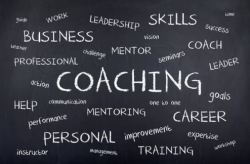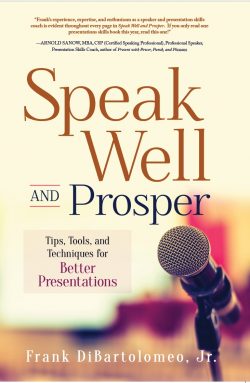As a Public Speaker Are You Also a Coach to Your Audience?

“Perfection is not attainable, but if we chase perfection we can catch excellence.”
– Vince Lombardi, legendary coach of the NFL’s Green Bay PackersWhen speaking to your audience, have you ever thought you were also a coach to them?
The International Coaching Federation (ICF) defines coaching as “partnering with clients in a thought-provoking and creative process that inspires them to maximize their personal and professional potential.”
As a public speaker, how can you partner with your audience in a thought-provoking and creative process that inspires them to maximize their personal and professional potential?
Below are three ways you can coach your audience:
Interactive Workshops and Activities
Coaching is helping others to discover the answers to their questions from within. It does not supply those answers to the other person.
Holding an interactive workshop with self-discovery activities with your audience is an excellent way for your audience to discover the answers to their questions because they experience it themselves.
Brainstorming sessions, group discussions, role-playing exercises, or problem-solving challenges all aid your audience in discovering answers to their questions
By fostering a collaborative environment where everyone can contribute their ideas and perspectives, speakers empower individuals to explore new concepts, think critically, and discover innovative solutions to common challenges.
Another method you can use to partner with your audience in a thought-provoking and creative process that inspires them to maximize their personal and professional potential is to build in time for personal reflection and goal-setting
Personal Reflection and Goal Setting
Incorporate personal reflection and goal-setting exercises into your presentations.
Speakers can guide audience members through exercises that prompt self-discovery, such as journaling prompts, visualization techniques, or personality assessments.
These presentation methods have the added benefit of keeping your audience engaged. This is always a benefit to speakers.
By encouraging individuals to reflect on their values, strengths, and aspirations, speakers help them gain clarity about their personal and professional goals, empowering them to take proactive steps toward achieving them.
These exercises also allow your audience members to take ownership of their self-development. You are teaching them this new skill of self-development. They will not have to wait for the next seminar, self-development book, or podcast to improve their lives. They can do it on their own.
By fostering a collaborative environment where everyone can contribute their ideas and perspectives, speakers empower individuals to explore new concepts, think critically, and discover innovative solutions to common challenges.
So, two methods you can use to partner with your audience in a thought-provoking and creative process that inspires them to maximize their personal and professional potential are to incorporate interactive workshops and activities and to build in time for personal reflection and goal-setting.
A third way you can partner with your audience in a thought-provoking and creative process that inspires them to maximize their personal and professional potential is to use storytelling and inspirational examples.
Storytelling and Inspirational Examples
If you are even a casual reader of these articles, you know that storytelling is a powerful way to convey your message to your audience.
Storytelling can captivate your audience’s attention and evoke their emotions. When you stir your audience’s emotions, you go a long way to having your audience remember and implement your presentation message.
You can share compelling stories and inspirational examples that resonate with your audience’s experiences and aspirations.
These stories can illustrate critical principles, highlight success stories, or showcase real-life examples of individuals who have overcome obstacles to reach their full potential.
By weaving storytelling into your presentations, you inspire your audience to believe in themselves, embrace change, and pursue their dreams with passion and resilience.
You can partner with your audience in a thought-provoking and creative process that inspires them to maximize their personal and professional potential by (1) incorporating interactive workshops and activities into your presentations, (2) building in time for personal reflection and goal setting, and (3) using storytelling and inspirational examples.
As a public speaker, are you a coach to your audience?
Yes, you are!
Call to Action
Partner with your audience in a thought-provoking and creative process that inspires them to maximize their personal and professional potential by
Incorporating interactive workshops and activities into your presentations
Building in time for personal reflection and goal-setting
Using storytelling and inspirational examples
“Ability is what you’re capable of doing. Motivation determines what you do. Attitude determines how well you do it.”
– Lou Holtz, American former football coach and television analystFrank DiBartolomeo is a retired U.S. Air Force Lieutenant Colonel and award-winning speaker, presentation and interview skills coach, and Professional Member of the National Speakers Association. He was awarded Toastmasters International’s highest individual award, Distinguished Toastmaster because of his outstanding work in public speaking and leadership.
Frank formed DiBartolomeo Consulting International (DCI), LLC (www.speakleadandsucceed.com) in 2007. The mission of DCI is to help technical professionals to inspire, motivate, and influence their colleagues and other technical professionals by improving their presentation skills, communication, and personal presence. Reach Frank at frank@speakleadandsucceed.com and (703) 509-4424.
Don’t miss Frank DiBartolomeo’s latest book!
“Speak Well and Prosper: Tips, Tools, and Techniques for Better Presentations”

Available now at Amazon.com and BarnesandNoble.com
